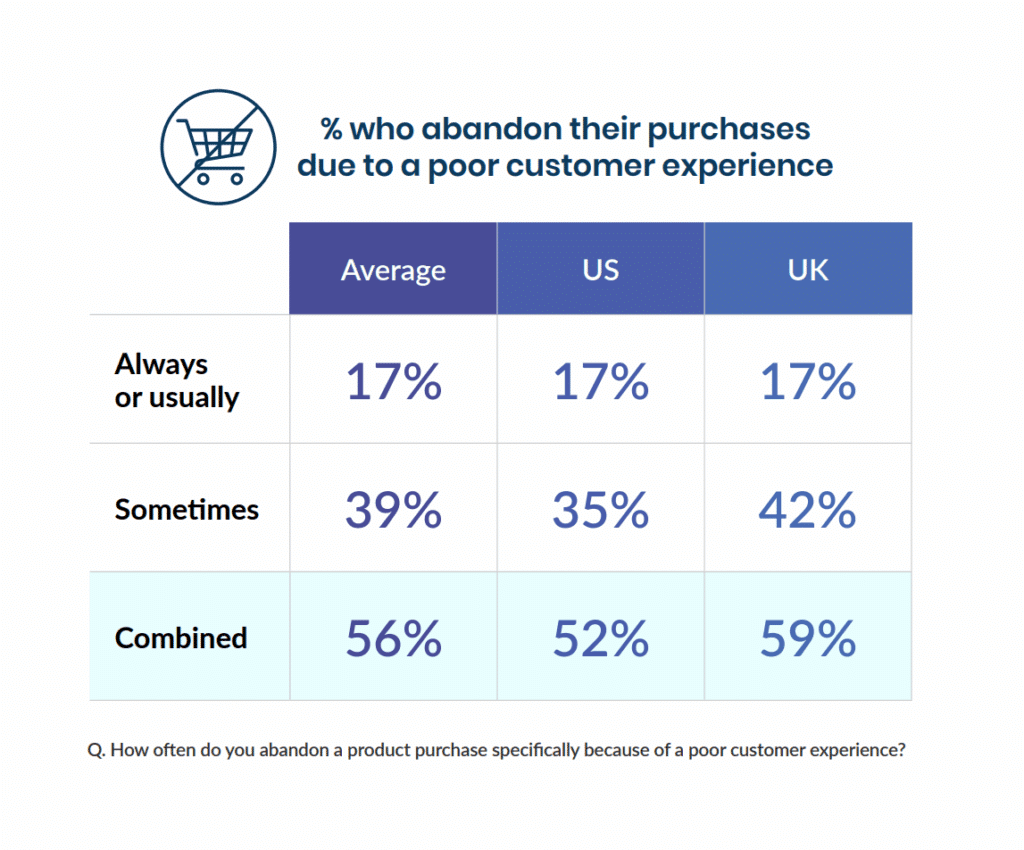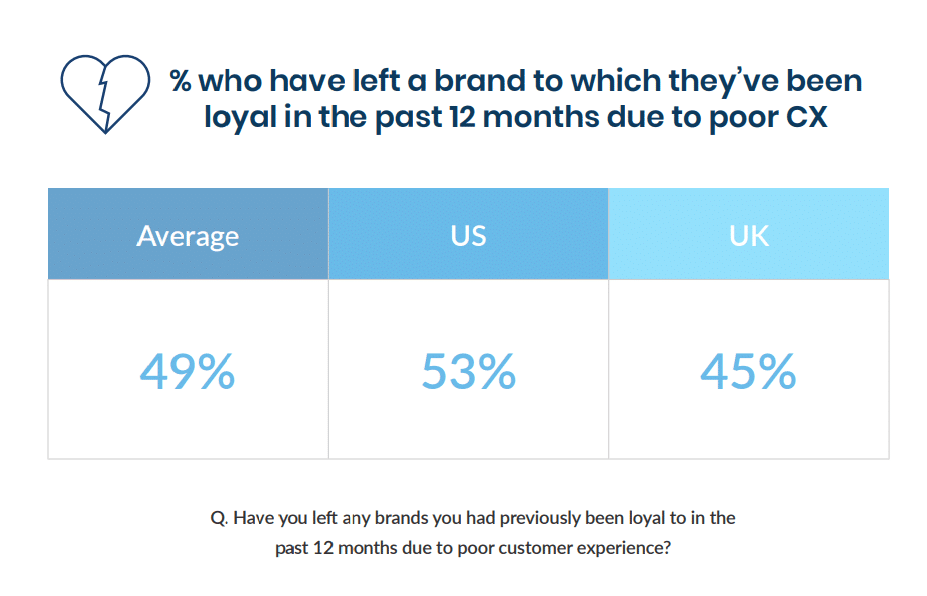More than half of consumers will abandon a brand after just one bad interaction—a sobering reality that many AI-obsessed companies are choosing to ignore as they race to automate their way to higher profits. But according to former Mastercard VP of Global Customer Experience Lance Gruner, businesses sacrificing customer experience at the altar of AI innovation may be fundamentally misunderstanding not just what builds trust in technology, but what keeps customers loyal in an increasingly automated world.
For some companies, using AI technology to unlock their highest earning potential is not merely a leading goal, but often the only goal. It is a thought process that, if left uncorrected, may lead to decisions that negatively impact customer experience (CX). Likewise, some tech leaders believe that implementing AI despite poor CX in the short term is worthwhile, provided it yields long-term benefits.
In these instances, what companies haven’t considered is how customers will react in both the short and long term. Emplifi released survey results in 2022, in which over 2,000 people from the United States and the United Kingdom shared their opinions about their CX experiences and preferences. Of those questioned, over 50% said they would abandon a brand and switch to a direct competitor after experiencing just one poor interaction.

In fact, nearly half (49%) admitted that in the year prior, due to bad CX they’d followed through on this sentiment and left behind a company to which they’d previously been loyal.
At this moment, many thousands of businesses are working hard to either embed AI into existing products or bring new AI-based apps to market. What separates the most successful brands from the rest will be those who don’t treat CX as something to ignore or degrade for the sake of adjusting to AI. Instead, the secret formula for building that long-term customer base may be allowing CX and AI to work hand in hand.
Customer experience: an unnecessary sacrifice
What leads some brands to go out of their way to deprioritize customer experience when adapting AI into their products or services? It may be a fundamental misunderstanding of what CX actually is. Lance Gruner, who previously worked as the Vice President of Global Customer Experience at Mastercard, theorizes as such. Gruner led teams located across 30 countries that handled over 18 million transactions worldwide and in 73 different languages.
During an interview with Innovating With AI, Gruner shared that as a consultant, he repeatedly encountered companies that weren’t maximizing the benefits of AI usage. He blames this in part on companies not understanding the difference between CX and customer service.

“Customer service really is a moment in time. It really happens when a customer calls you, chats with you, or maybe sends an email. But customer experience really is the sum of every interaction that customer has, including the ones that really never touch a call center.”
Rather than a single moment or touchpoint, as is the case with customer service engagement, Gruner advises thinking of CX as the sum of all interactions when engaging with a business.
With this new framing of what CX really is, it makes sense that customers will move away from a company that delivers a poor experience, even if they’ve used that product or service for years. Therefore, CX should never be viewed as “sacrificial” as you work to introduce elements of AI into your product.
Successful brands won’t sacrifice CX for AI
Degrading CX doesn’t make sense because when used correctly, even if the goal is cost-effectiveness, AI tools will likely elevate the customer experience in ways we can only begin to imagine. Said Gruner, “I [see AI] as a way to really improve the customer journey from, you know, the predictive servicing to fraud detection to real-time personalization.”
Rather than competing for priority, Gruner sees a strong, exciting potential for AI to shift CX from functioning reactively to being so proactive that issues are solved before customers even notice there was a problem. For example, “Imagine your airline texts you that your flight is delayed, but also tells you that you’ve automatically been rebooked, your luggage has been rerouted, and a food voucher is waiting on your phone.” With these AI-powered automations in place, a balm is applied to the wound before the customer even feels the sting.
Such actions go a long way toward building faith not just in AI, but in the companies behind the tools, and it’s this distinction that may be getting taken for granted.
AI isn’t the source of trust issues
Customers begin to place more trust in AI—and your brand—when it’s used to make the customer’s experience better. As it turns out, the real battle is establishing trust in the company behind the AI tool in question, rather than getting the average customer to trust AI technology in and of itself.
Consider the recent case of language-learning powerhouse Duolingo, which saw tremendous backlash after announcing it was replacing human employees and contractors with AI. As the company that was previously so human-centric, this new “AI-first” initiative felt like a breach of trust and led many users to cancel their accounts.
Gruner also shared that he doesn’t believe customers “inherently distrust AI.” Instead, he suspects they are distrustful of bad experiences. “If AI [makes] their life easier, they’ll embrace it; if it frustrates them, [they’ll] reject it.” He adds, “I think if AI resolves an issue instantly, [without it] crossing into creepy, I think people would welcome it.”
Getting people on board with AI technology or with your specific AI tool can likely be distilled to a willingness to personalize the customer experience and proactively solve problems. Brands that move to do so will garner and maintain customer trust, which could help overall sentiment towards AI continue to move in a positive direction.
“Trust is vital,” said Gruner. “I think [AI is] going to make the journey easier… Customers really want personalization. AI is going to help [achieve that].”
CX is likely a litmus test for AI innovation
Whether the motivation is to use AI to drive a company’s technology forward, automate repetitive processes, or leverage the technology to get a company “in the black,” customer experience may very well be the key to making it happen. The willingness of top decision makers to prioritize how customers navigate every level of engagement could be what moves them ahead of competitors or sees them slipping behind, forever chasing trends.
Innovators will understand that CX isn’t standing in the way of AI, but presents an opportunity to demonstrate just how useful this technology can be. Instead of talking up how cost-effective AI tools are, businesses focused on strong CX can prove it by predicting costly problems rather than reacting to them. This proactivity boosts earnings as customers come to trust products and brands that make their lives easier.
Ultimately, companies that move toward enhancing CX using AI rather than degrading CX in the name of AI are the ones in the best position to grow customer loyalty. By contrast, brands that threw away positive CX in favor of chasing other metrics will likely learn the hard way that customer trust is not so easy to regain, even with outstanding AI-enhanced products.



